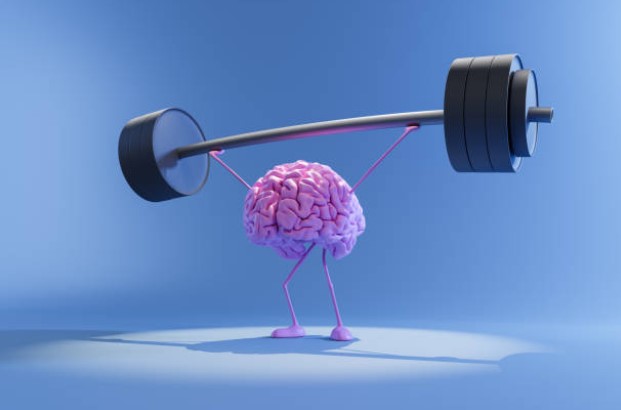Intellectual Property Rights And Darwinism In E-Commerce
INTRODUCTION
Intellectual Property Rights And Darwinism In E-Commerce “Intellectual Property” Rights refer to mental creations such as inventions, literary and creative works, as well as symbols, names, and pictures utilized in business. With evolution and development in recent trends and creations, every person got the right to protect their artistic creativity by acquiring intellectual property rights to save their invention from being violated by the competition present in the market. With India being evolving globally, the scope of IPR is also gaining popularity and the attention of people to secure their work. All efforts go in vain if, after years of hard work and determination, the owner cannot ensure protection for their work, so IPR plays a significant role. At many points, because of poor enforcement of the law, the creator has to invest so much time and money to ensure protection which is one of the challenges India facts.
“The Paris Convention for the Protection of Industrial Property in 1883 and the Berne Convention for the Protection of Literary and Artistic Works in 1886 both acknowledged the significance of intellectual property. The World Intellectual Property Organization administers both accords (WIPO).”

[Image Source: gettyimage]
DESIDERATE OF INTELLECTUAL PROPERTY RIGHTS
Intellectual Property Rights cover different kinds of rights and benefits given to the creator or owner of the work. It can be legally protected with varying types of IPR tools such as Industrial Property which covers Patents, Trademarks, Industrial Designs, Geographical indication also there is Copywrite protection which is rendered to any literary works such as novels, poems, and plays, films, musical works, artistic works such as drawings, paintings, photographs and sculptures, and architectural designs. There are different legislations and acts such as the Patents (Amendment) Act 2005, Copyright (Amendment) Act 1999, The Trademark Act 1999, The Designs Act 2005, and many more to regulate and protect India’s intellectual property rights. However, an innovation is not eligible to enjoy both trade secret and patent protection which was observed by the Delhi High Court in the case of Prof. Dr. Cluadio De Simone & Anr. v. Actial Farmaceutica SRL. & Ors. 2020.
The Indian Information Technology (IT) Act 2000 legalizes electronic records and electronic signatures. These are the first steps toward paperless trade. “This Act also includes the Ministry of Electronics and Information Technology’s Information Technology Rule, 2000, which governs reasonable security policies and procedures for sensitive personal data or information. Section 72A of the IT Amendment Act of 2008 specifies the penalty for disclosing information in violation of a legal contract.” In the era of digitalization and globalisation simultaneously, it is imperative to protect ones IPR in order to maintain a fair and competitive market.
INTELLECTUAL PROPERTY KIN OF E-COMMERCE
Intellectual property law safeguards against the disclosure of trade secrets, which entails further safeguards against unfair competition. As a result, intellectual property becomes a more valuable asset than owning a physical item. This is particularly evident in the technology and digital economy sectors. Without intellectual property rules and regulations regulating the operation of IP laws, no new works would have been created, and someone’s hard work might have been stolen and disseminated across the globe without payment to the inventor for his effort on the innovation.
There are two critical points connected with Intellectual Property that must be cared for.
(i) Keeping your own intellectual property safe
One of the most frequent mistakes made by intellectual property owners is to disclose the intellectual property before applying for protection of that property. Similarly, making trade secrets public in many nations immediately nullifies any protection.
(ii) Infringing on another person’s Intellectual property
E-commerce websites that are in the business of purchasing and selling goods often violate intellectual property rules by displaying product descriptions and pictures. The following are some of the most essential guidelines to follow in order to avoid violating intellectual property laws: It has to be your work; Permission to use given by the creator; It must fall within the scope of the public domain; It is protected under fair usage.
DIFFERENT COMPONENTS IN FORTIFYING E-COMMERCE
- Patents and utility models may be used to protect E-Commerce systems, search engines, and other Internet-based technological tools.
- Software and text-based HTML code used on websites may be protected by copyrights or patents.
- Copyrights may be employed only to preserve the look and feel of a website, including text, pictures, graphics, audio, and videos.
- Databases may be protected by special database laws or copyrights.
- Trademarks may be used to protect names, logos, emblems, and other symbols that appear on websites.
- Screen displays, visual user interfaces, web pages, and computer-generated graphic symbols are all eligible for Industrial Design Protection.
- A trademark may be registered for any mark that represents the company’s name and character.
- Patents may be applied for online business techniques.
AMAZON IP ACCELERATOR–THE ASSISTANCE TO INDIAN BUSINESSES
Amazon is one of the leading e-commerce platforms currently operating in India started in the year 1994, gained popularity, and still growing rapidly, more than 6.5 million sellers are involved worldwide in Amazon for business purposes. it has also launched its Amazon IP Accelerator program to provide assistance to its sellers who are also brand owners, it enables business owners to acquire and protect their Intellectual property. Establishing IP rights is significant for business owners operating an either small or medium-sized business it would protect their business from malpractices and any other malicious and unfair act of rivals or competitors.
Amazon Accelerator program is already in existence in countries like the US, Canada, Japan, Europe, Mexico, and now in India, this initiative by Amazon will serve as a helping hand to different sellers dealing on its platform to go forward with the IP registration process this initiative by Amazon is a step ahead for Indian E-commerce.
However, with assistance and evolution chances of infringement increased several E-commerce platforms misuse their liberty and indulge themselves in malpractices and addressing same various E-commerce platforms were restrained direct selling products of companies without the consent of the owner or manufacturer which was held in case of Amazon Seller Services Pvt. Ltd. & Ors. v. Amway India Enterprises Pvt. Ltd. & Ors. 2020.
CONCLUSION
E-commerce is a sector that is rapidly expanding. And there may be occasions when someone’s work or innovation is made public without the creator receiving enough credit, labor, or financial compensation. As a result, Intellectual Property plays a critical role in this regard. Almost all of the material accessible on the internet is protected by it. Many E-Commerce enterprises are conducted between a businessman or corporation and customers, and intellectual property plays an integral part in making these transactions safer. We have addressed that IPR has been evolving from back and forth, and with a boom in digitalization, it has become inevitable to ignore IPR.
Read More about Intellectual Property Rights
Click Here: K&K,
Click Here: IIPRD
Click Here: GPF
Click Here: IPLF
Author: Nikita Parihar – a student of Lovely Professional University, School of law (Punjab), in case of any queries please write back us via email at support@ipandlegalfilings.com or contact us at IP And Legal Filings.



